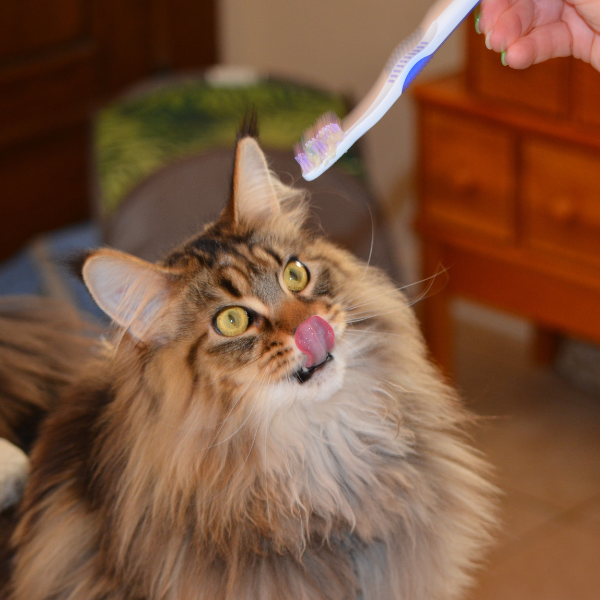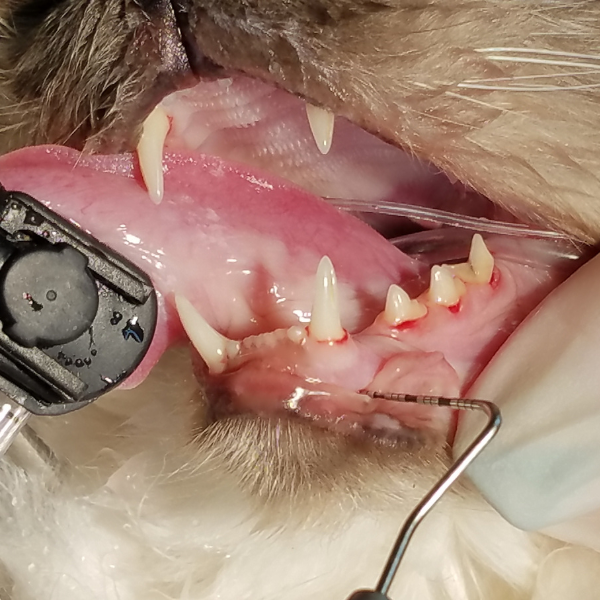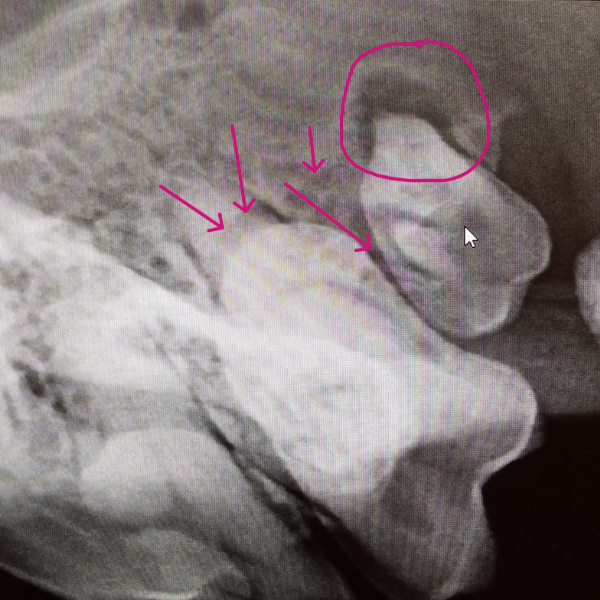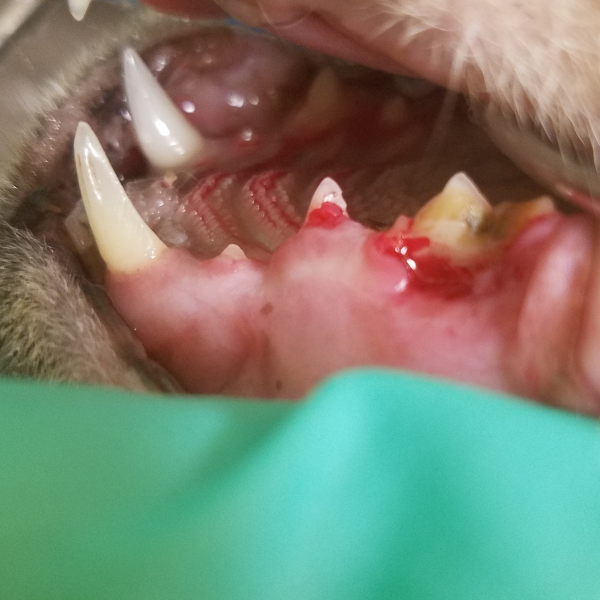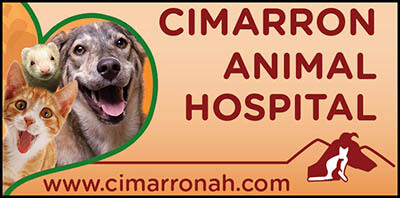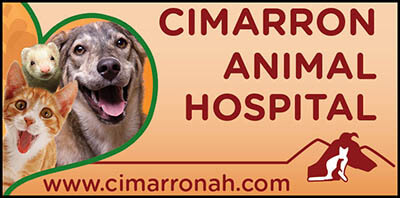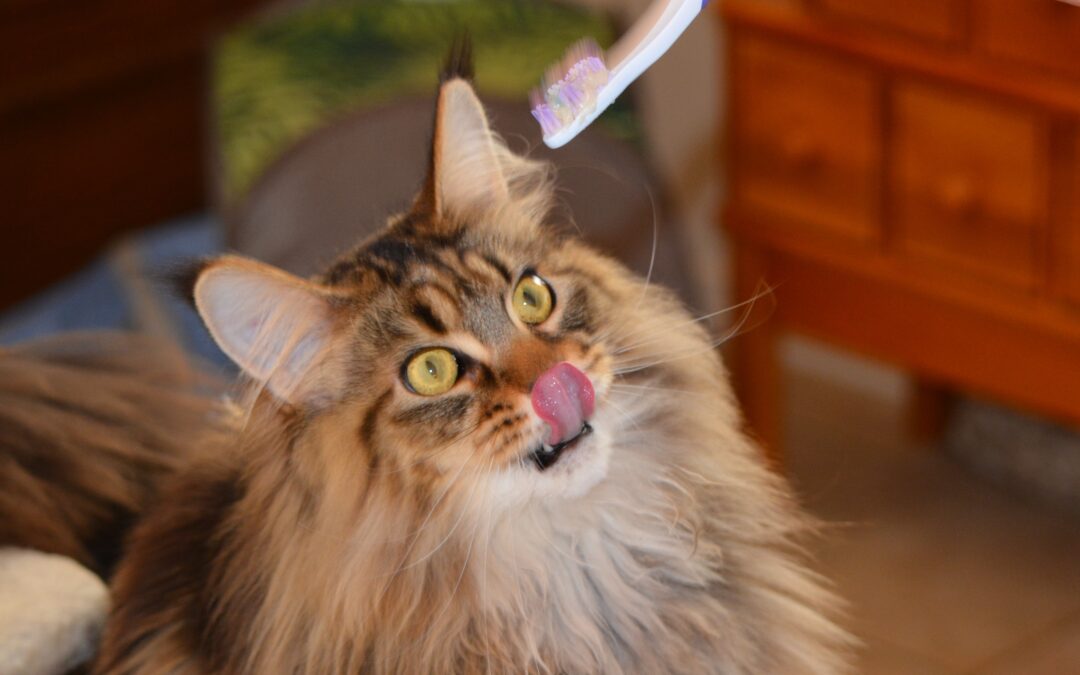The Ripple Effect on Systemic Health
Dental disease doesn’t stay confined to the mouth; it can have a ripple effect on the rest of the body. Bacteria from infected gums, periodontal pockets and dental abscesses gain access to the bloodstream every day. That bacteria has far reaching adverse effects on all of the body’s systems.
Heart Health:
One of the most critical connections between dental health and systemic disease is the impact on the cardiovascular system. Bacteria from the mouth can enter the bloodstream, leading to the formation of bacterial plaques on heart valves. This condition, known as infective endocarditis, can compromise the heart’s function over time.
Kidney Complications:
Dental disease has also been linked to kidney problems in pets. The same bacteria that enter the bloodstream can reach the kidneys, potentially causing infections or contributing to the development of kidney disease. Kidney issues can significantly impact a pet’s overall health and longevity, making it imperative to address dental health as a preventive measure.
Respiratory System Challenges:
Poor oral health can affect the respiratory system as well. Bacteria in the mouth may be inhaled into the lungs, leading to respiratory infections such at bronchitis. For pets with pre-existing conditions such as asthma, the added burden of oral bacteria can create a crisis!
Gastrointestinal Distress:
While it may not seem immediately obvious, dental disease can even impact the gastrointestinal system. Pets with painful dental conditions may avoid chewing, leading to inadequate breakdown of food. This can result in gastrointestinal discomfort, bloating, and other digestive issues. Not to mention, when dental disease is painful enough, pets will not eat as much as they should, losing weight and becoming frail.
“InflamAging”
Chronic dental disease causes inflammation not only in the mouth, but, through bacterial shedding, throughout the body as well. Chronic inflammation causes premature wear and tear on the whole body, contributing to premature aging of the organs mentioned above, but also the lungs and even the brain! The immune system becomes exhausted fighting the infection every day resulting in decreased ability to protect the body from other infections. Cell lines age faster, robbing the pet of months or years of happy life.
Proactive Oral and Dental Health Care contributes to a longer life!
Prevention and Home Care
The good news is that maintaining optimal oral health is achievable with the right preventive measures and home care routines.
**Establish a Regular Brushing Routine:**
Introducing a regular brushing routine is one of the most effective ways to maintain your pet’s dental health. Use a pet-friendly toothbrush and toothpaste, and start slowly to get your furry friend accustomed to the process. Aim for a gentle, circular motion, focusing on the outer surfaces of the teeth. Gradually increase the frequency to make it a positive and stress-free experience for your pet.
Union Veterinary Hospital How to brush your Dog’s Teeth
Kikopup – Tooth Brushing- fear free tips
**Choose the Right Dental Products:**
Selecting appropriate dental products is crucial for your pet’s oral care. Opt for toothbrushes designed for dogs and cats, as well as enzymatic toothpaste specifically formulated for pets. Dental chews, gels and water additives designed to promote oral health can also be beneficial. Ensure these products have the Veterinary Oral Health Council (VOHC) seal, indicating they meet certain standards for effectiveness.
Professional Dental Care for Pets
While home care is crucial, regular professional dental cleanings are equally important. Professional dental cleanings are performed under anesthesia, ensuring a thorough tooth by tooth examination for fractures, periodontal pockets and painful resorptive lesions that are hidden from plain view. Dental x-rays are CRUCIAL to identify the extent of disease under the gumline. About 50% of diseased teeth look “normal” above the gumline but harbor, often serious, infection under the gums and in the bone! Administering anesthesia also ensures a painless and stress-free experience for the pet during the dental cleaning procedure.
Proactive Homecare and Professional Dental Treatments work together to protect you pet from the pervasive consequences of dental disease – infective endocarditis, kidney disease, respiratory infections, and digestive issues and premature aging. They protect our gentle pets from the pain of dental infections. By staying vigilant for the signs of dental disease such as dropping food, leaving little “chibbles” of food behind, tooth grinding, bad breath, discolored accumulations on the teeth, pet owners can keep their pets healthier, happier for longer!
